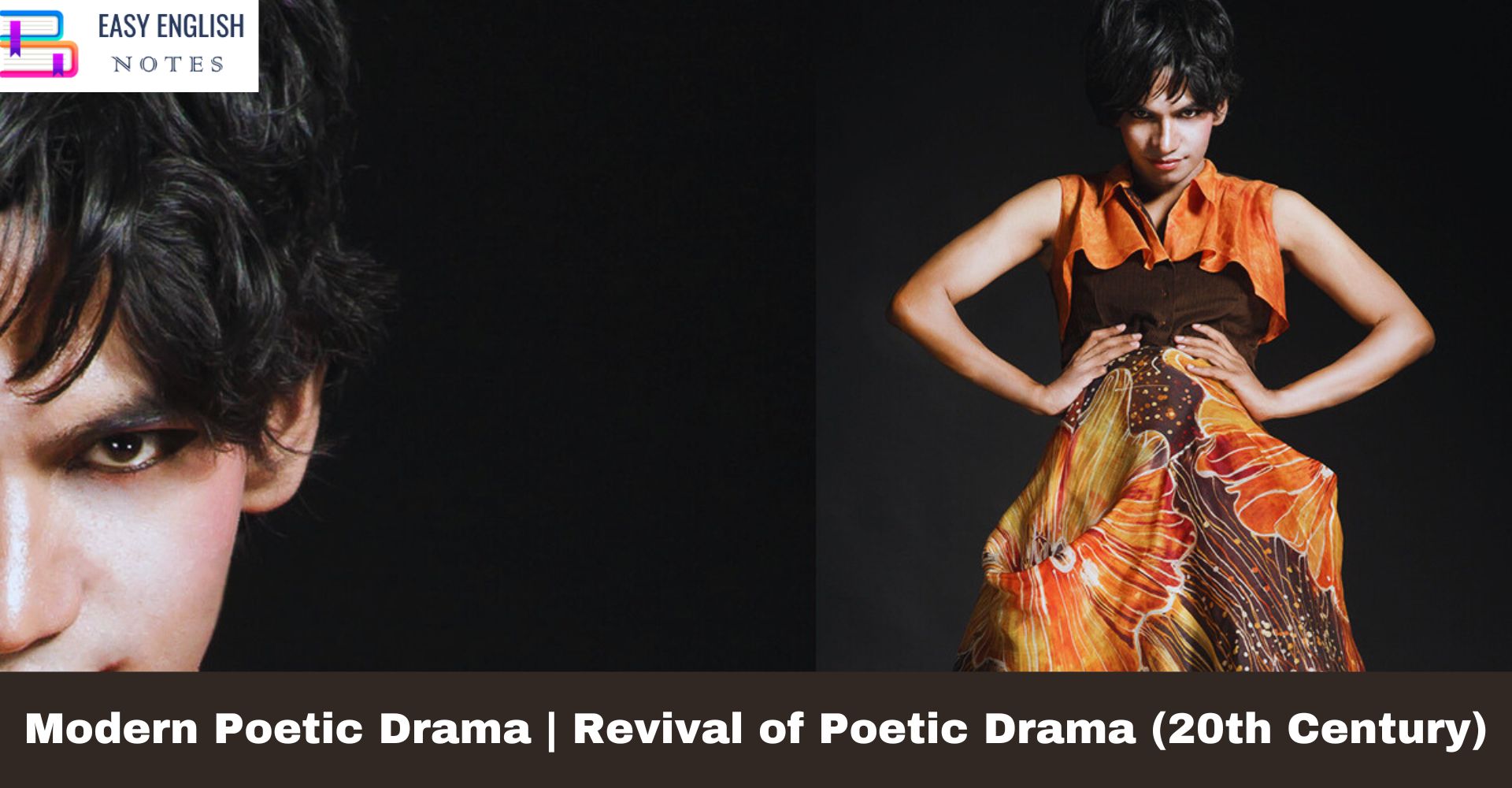We have the revival of modern poetic drama as a reaction against the naturalism of Shaw and humanitarianism of Wells. The influence of naturalism on the stage resulted in a decline in richness of speech. The visual element became more and more elaborate. Naturally, the capacity to communicate experience in language had diminished. In Shaw’s later plays, fantasy was substituted for plot, caricature for character and the repetition of old settled notions for fresh thinking. In the 20th century, various poets tried to revive that tradition of the poetic drama which had been dead since the Restoration Period.
The Irish literary Renaissance played a prominent role in the revival of poetic drama. Under the influence of Chekhov and Maeterlinck, Yeats, Lady Gregory, Edward Martyn, George Moore and J. M. Synge did a lot to revive poetic drama. Yeats was the greatest of all. Yeats wrote about twenty-six plays. About half of the plays were before 1919. The plays are written in a dreamy language. In his later plays, there is a curious fusion of ritualism and realism, symbolism and colloquialism, the ceremonies and the personal. His most popular plays are “The Countess Cathleen”. “The Shadowy Waters”, “The Land of Heart’s Desire” and “On Baile’s Strand”.
T. S. Eliot started his career as a practical dramatist by writing “The Rock” He wrote all his plays in poetry. His second play was “Murder In The Cathedral” It was written to be performed in Canterbury Cathedral at the annual festival. It commemorated the death of St. Thomas Becket. Becket was Canterbury’s famous martyr who had been murdered in the very cathedral where Eliot’s play was first performed. “Murder In The Cathedral” is closer to being a drama in the real sense than “The Rock” is. It makes a particularly effective use of chorus. “The family Reunion” is the third play of Eliot. In this play Eliot begins to acquire a proper sense of the stage. Eliot’s next play is “The Cocktail Party”. It is a success at all levels. It bridges the gap which lies between the poet’s privacies of sensibility and obviously crude appeal which is necessary in a successful play. “The Cocktail Party” has a very serious theme. It deals with various kinds of self-deception in which even cultivated people tend to indulge. It also describes how self deception prevents people from following their true vocation.
Christopher Fry was another dramatist who has made significant contribution in the realm of modern poetic drama. “A Phoenix Too Frequent” is an outstanding achievement of Fry. There is facility of phrases and images in this play. His other works are “The Lady’s Not For Burning” and “Venus Observed”. The comedies of Fry are the playful and fantastic wealth of language. They seem to recall Shakespeare’s use of conceits and quibbles in “Love’s Labour’s Lost”. Fry lacks a coherent conception of his play as a whole. But his careless abundance of episode and epithet is one contributing factor to his remarkable popular success.
Stephen Spender was a dramatist of much consequence. His most important play is “The Trial of A Judge”. The very quality and defects of language in this play make Mr. Spender seem a little thin as a poet of personal life. But it assists him as a dramatist. Critics have described “The Trial of A Judge” as the most effective piece of poetic theatre since Otway’s “Venice Preserved”.
Also Read :
- Compare Hamlet with Macbeth, Othello and other Tragedies
- “The Pardoner’s Tale” is the finest tale of Chaucer
- Prologue to Canterbury Tales – (Short Ques & Ans)
- Confessional Poetry – Definition & meaning
The most successful experiments of W. H. Auden and Isherwood in the field of poetic drama were “The Ascent of F” and “Across The Frontier”. These plays have a number of comments on the problems of troubled decade. The authors are in exploration of the depth of reality through symbolic situations and simplified cartoon characters. Apart from the characters being types rather than persons, the symbolism is topical rather than permanent. “The Dog Beneath The Skin” is also an important drama by Auden and Isherwood. It is rather a kind of pantomime and impoverished school theatricals.
Mr. Nicholson, Miss Anne Ridler and Mr. Ronald Duncan are three young dramatists of the modern age. Their plays cannot be said to have quite moved out of the shadow of the church porch. They are of the stage of “Murder In The Cathedral” or even of “The Rock”.
PLEASE HELP ME TO REACH 1000 SUBSCRIBER ON MY COOKING YT CHANNEL (CLICK HERE)











